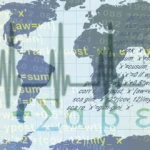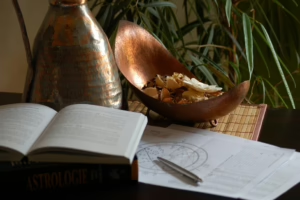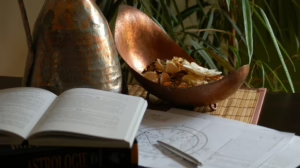Horoscopes and Forecasts: Understanding the Influences of Celestial Bodies
Introduction
Horoscopes and forecasts have long captivated individuals, offering insights into their personalities, relationships, and life’s path based on the positioning of celestial bodies. These tools, steeped in ancient traditions, utilize the movements of planets and stars to predict and analyze events in personal and communal life. This article explores the history of horoscopes, the mechanics behind forecasts, their cultural significance, and the ongoing debate regarding their validity.
The History of Horoscopes
Ancient Origins
The practice of astrology dates back thousands of years, with roots in Babylonian astronomy around 2000 BCE. Babylonians were among the first to record the movements of celestial bodies and correlate them with earthly events. They created the Zodiac, dividing the sky into twelve sections, each associated with a specific constellation and corresponding characteristics.
Astrology in Different Cultures
Astrology developed independently in various cultures, each integrating local beliefs and methodologies:
- Egyptian Astrology: Integrated with religious beliefs, the Egyptians associated gods with specific stars and planets, creating a unique astrological system.
- Chinese Astrology: Focused on a 12-year cycle, with each year corresponding to an animal sign. It reflects ideas of balance and harmony with nature.
- Indian (Vedic) Astrology: Utilizes a sidereal zodiac based on the actual positions of constellations and emphasizes karmic influences on individual life paths.
With the spread of civilizations, astrology traveled and evolved, influencing culture, religion, and science globally.
The Mechanics of Horoscopes
Creating a Horoscope
A horoscope is essentially a map of the sky at a specific moment, usually the time of a person’s birth. The essential elements of a horoscope include:
- The Zodiac: There are twelve signs in the Zodiac, each representing distinct traits and tendencies. These signs include Aries, Taurus, Gemini, Cancer, Leo, Virgo, Libra, Scorpio, Sagittarius, Capricorn, Aquarius, and Pisces.
- Planets: The positions of planets (Sun, Moon, Mercury, Venus, Mars, Jupiter, Saturn, Uranus, Neptune, and Pluto) govern various domains of life. Each planet symbolizes different aspects of our existence, such as love, communication, and ambition.
- Houses: The horoscope is divided into twelve houses, each representing specific areas of life, such as relationships, career, and home.
Astrological Aspects
Astrological aspects refer to the angles formed between planets in a horoscope. Understanding these angles is crucial as they reveal how celestial influences interact. Key aspects include:
- Conjunction: When two planets come close to one another, enhancing their energies.
- Opposition: When planets are 180 degrees apart, indicating tension or conflict.
- Trine: A harmonious angle of 120 degrees, often representing ease and support.
- Square: A challenging angle of 90 degrees, indicating obstacles and lessons.
Interpreting a Horoscope
Astrologers combine these elements to interpret a horoscope. They analyze planetary positions, aspects, and houses to provide insights into a person’s character, strengths, weaknesses, and potential life events.
Types of Forecasts
Natal Charts
The most personal form of astrology is the natal chart, which reflects the individual’s characteristics and life possibilities based on their birth data. This chart is seen as a blueprint for understanding personal dynamics, including emotional responses, relational patterns, and career inclinations.
Transits
Transits refer to the current positions of the planets compared to their positions in a person’s natal chart. Astrologers analyze transits to forecast upcoming challenges and opportunities, helping individuals navigate life events more effectively.
Progressions
Secondary progressions involve advancing the natal chart to understand personal growth and development over time. Astrologers look at the positions of planets as they move a day for each year of life, highlighting periods of significant change.
Solar and Lunar Returns
A solar return chart is cast for the moment the Sun returns to its natal position, providing insights into the year ahead. Similarly, a lunar return chart focuses on the Moon’s position, offering monthly insights.
Cultural Significance of Horoscopes
Horoscopes in Daily Life
In many cultures, horoscopes are part of daily rituals. People often check their horoscopes for guidance on significant decisions, such as career moves or relationship choices. Newspapers and magazines frequently feature daily/weekly horoscopes, illustrating the widespread acceptance of astrology in popular culture.
Astrology and Personal Identity
For many, astrology serves as a powerful tool for self-discovery. Individuals resonate with their signs and the traits associated with them, often using this knowledge to foster personal growth. Astrology can illuminate blind spots in personality and behavior, providing a language for understanding deeper inner conflicts and strengths.
Community and Belonging
Astrology often fosters community among its adherents. Many people engage in discussions about their signs and the commonalities between them. Astrology groups, workshops, and online forums offer spaces for individuals to explore their interests in a collective atmosphere.
The Debate: Science vs. Pseudoscience
The Skeptics’ Viewpoint
Critics of astrology argue that it lacks scientific validity. They assert that there is no empirical evidence supporting claims that celestial bodies influence human behavior or destiny. The mechanisms by which astrology would operate, such as gravitational pull or electromagnetic fields, remain unproven.
The Scientific Perspective
From a scientific standpoint, astrology does not meet the rigorous standards required for validation. Randomness in life events and the psychological tendency to find patterns can explain why some individuals feel horoscopes are accurate.
The Compromise: Psychological Astrology
Some modern practitioners advocate for a psychological approach to astrology, where horoscopes serve as tools for self-reflection rather than definitive predictions. This perspective recognizes astrology’s value in helping individuals gain insight into their emotions and behaviors without claiming absolute control over fate.
Modern Trends in Astrology
Technology and Astrology
The rise of technology has transformed how people access astrological insights. Applications and websites allow individuals to enter their birth details and receive personalized readings instantly. Social media platforms have created communities where enthusiasts share insights, predictions, and experiences.
Astrology for Everyone
A demystification of astrology is occurring, making it more accessible to younger generations. With the rise of wellness culture, astrology is often integrated into discussions about mental health and self-care. More people are exploring horoscopes for framework and support in navigating life’s complexities.
Astrology and Mental Health
As mental wellness becomes a focal point in society, many view astrology as a supplementary tool for understanding internal struggles. Knowledge of astrological influences can empower individuals to reflect on their mental and emotional states, fostering dialogue.
Conclusion
Horoscopes and forecasts remain a fascinating blend of art, tradition, and reflection, allowing individuals to explore their identities and navigate their lives. Despite skepticism regarding their validity, astrology continues to resonate as a source of guidance for many. Whether viewed as a spiritual practice or a psychological tool, the enduring appeal of horoscopes and forecasts speaks to humanity’s desire to understand themselves and the universe in which they exist. As society evolves, so too does the articulation of astrology, inviting new generations to engage with ancient wisdom in contemporary ways.
Exploring Your Horoscope
For those intrigued by astrology, learning to read your horoscope can be a rewarding experience. By understanding the basics of astrological signs and their influences, you can gain insights into your character and life path. Consider the following steps:
Getting Your Birth Chart
To dive deeper, many find it helpful to generate a full natal chart. This can be done through various online platforms or by consulting with a professional astrologer.
Study Your Sign
Familiarize yourself with the traits associated with your sun sign, moon sign, and rising sign. Each offers unique insights into different aspects of your personality.
Keep a Journal
As you explore your astrological influences, maintaining a journal can be beneficial. Document your observations and reflections regarding your horoscopes and notable life events or feelings to see how they align.
Engage with a Community
Consider joining an astrology community, either online or in person. Exchanging insights and experiences can enrich your understanding.
Approach With an Open Mind
Embracing astrology as a tool for reflection rather than absolute truth can enhance your experience. Utilize horoscopes to stimulate thought and discussion about your life, possibilities, and self-awareness.
By blending the ancient wisdom of astrology with modern understanding, individuals can enhance their self-discovery journeys and explore life’s possibilities with newfound awareness.
Final Thoughts
As you embark on your astrological journey, remember that horoscopes serve as a guide rather than a roadmap. Life’s unpredictability and your choices ultimately shape your path. Embrace astrology as one of many tools in your quest for understanding and fulfillment, opening doors to deeper self-awareness and connection with the universe.
A Call to Explore
Now more than ever, you can align with the stars, harness their wisdom, and find comfort in the shared experiences of humanity. Astrology invites you to explore, reflect, and grow – a timeless journey through the cosmos that can illuminate your path on Earth.


























Add Comment